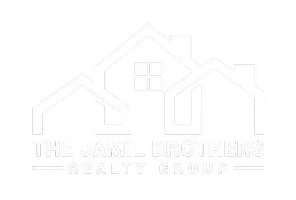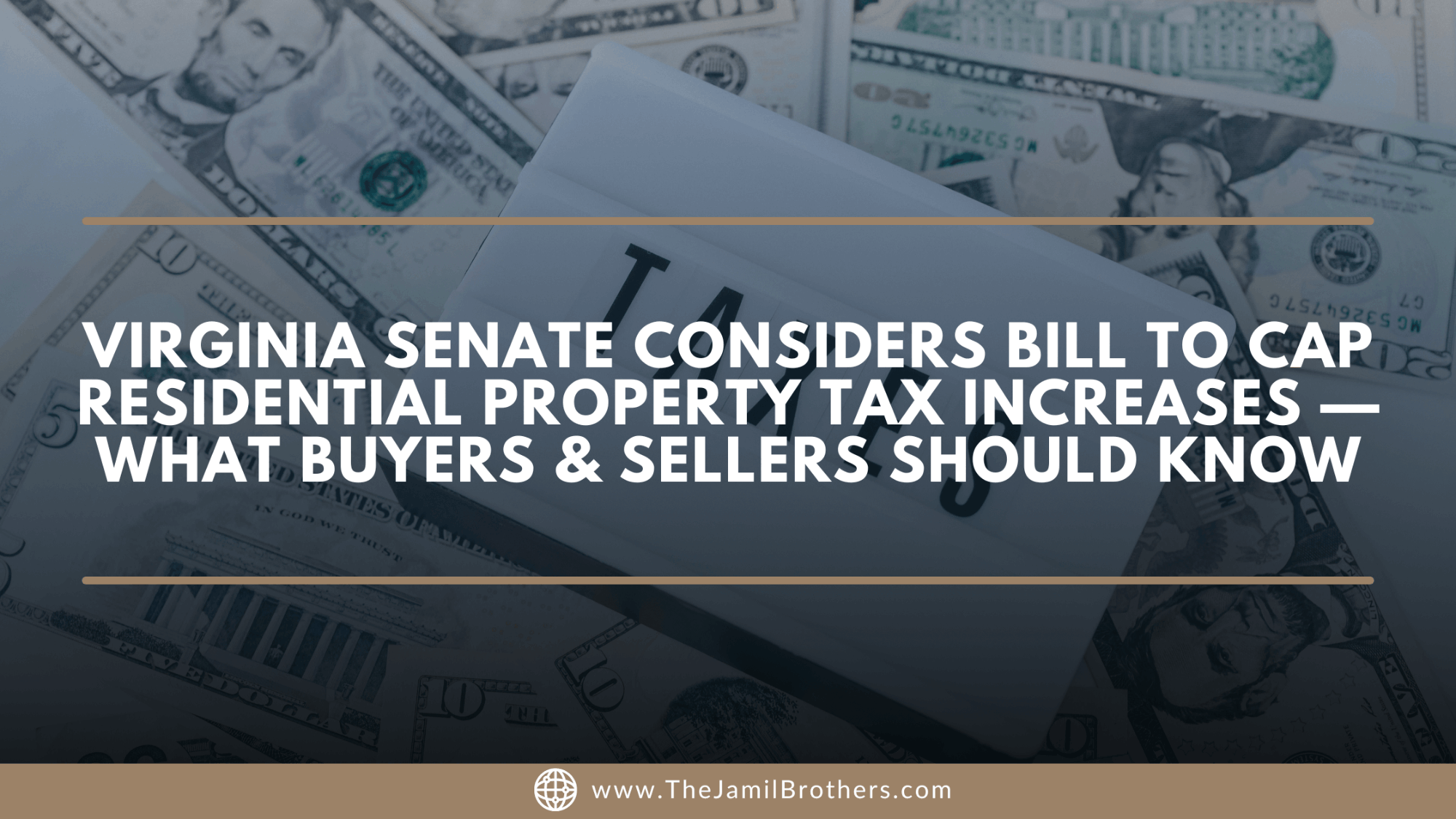Virginia Senate Considers Bill to Cap Residential Property Tax Increases — What Buyers & Sellers Should Know
Home‑owners across Northern Virginia are seeing property tax bills rise as home values and assessments continue to climb. At the same time, the state legislature is weighing new limits on how much localities can increase those taxes in any given year. Whether you’re buying now or selling soon, understanding how this proposed change could play out is vital.
In this post, we’ll break down the proposed legislation, explore how it could affect home‑ownership costs, how it may impact local government funding and services, and what buyers and sellers in markets like Fairfax, Loudoun and Prince William counties should consider right now.
Get a Free Local Tax Impact Snapshot
Curious how a cap on tax increases could affect your home’s tax bill in Northern Virginia?
We can help you estimate potential future tax‑changes and position your home accordingly.
Free Tax Impact SnapshotWhat’s on the Table
The bill: Under current Virginia law, a locality’s governing body may set real‐property tax rates subject to notice requirements and hearings. The proposed legislation (see SB 620) would require a referendum by voters before a locality may raise residential real‑property taxes above certain thresholds.
Key change: Rather than a locality simply approving a tax‑rate or levy increase via ordinance or hearing, any more significant bump in the rate or levy would need direct voter approval in many cases.
Why it matters: If adopted, this could slow the pace of tax growth, restrict how aggressively local governments respond to rising home values and assessments, and thereby impact home‑ownership costs, affordability and local budget planning.
What Buyers & Sellers Should Know
• **Carrying costs for buyers**: With home values still climbing in Northern Virginia, assessments and tax bills often rise. A cap on tax‑increases can bring more predictability—but it doesn’t stop assessments from increasing, nor does it guarantee tax bills stay flat. Buyers should still factor tax growth into their budget.
• **Seller positioning**: Sellers may find that homes with greater tax‑bill stability become more attractive. If a locality is perceived as likely to face tax pressure, that may affect how buyers view your property and how you price it.
• **Neighborhood effects**: In fast‑appreciating zones (e.g., newer subdivisions or areas with major development), even a capped increase may not fully offset rising assessments. Conversely, in steadier markets a cap may provide a competitive advantage for sellers marketing tax predictability.
• **Affordability implications**: For homeowners holding their properties over multiple years, slower tax growth can free up budget and reduce carrying cost risks. For buyers, it supports better forecasting of long‑term costs—which matters especially in markets like Northern Virginia where home‑values are high and tax impact is material.
What Localities Face
• **Revenue constraints**: If tax increases are capped or require voter approval, localities may find less flexibility in responding to expense growth, infrastructure needs, school funding and other demands. Being in a high‑cost region like Northern Virginia, the impact may be more pronounced.
• **Budget trade‑offs**: With slower tax‑bill growth, jurisdictions may need to find cost savings, increase other fees or identify alternative revenue streams. Many Northern Virginia local governments already face budget pressure as assessments rise.
• **Service and infrastructure risk**: If tax growth is constrained but costs continue rising (labor, materials, inflation, growth demands), there may be pressure on service levels or deferred maintenance unless other funding sources step in.
• **Local vs. state policy tension**: While the state sets caps via legislation, localities still control rate, levy, assessments and budget decisions; balancing policy and local needs will be critical.
What You Should Do
1. Review recent assessment and tax trends. Look at how home‑assessments and tax bills have moved over the past 3–5 years in your county or neighborhood. This gives you a baseline for what “normal” tax growth has been.
2. Talk to a local real‑estate professional about your micro‑market. Northern Virginia has many micro‑markets (Fairfax vs Loudoun vs Prince William) with different growth, tax and affordability dynamics. A local agent who knows tax‑trends is valuable.
3. If selling: consider timing relative to policy uncertainty. If you believe tax‑growth may accelerate or policy shifts may affect buyer behavior, listing sooner rather than later may give you an advantage and clearer narrative.
4. If buying: build a buffer for taxes. Even if tax‑increases are capped, they won’t necessarily be flat. Factor higher carrying costs into your budget—not just the mortgage payment but taxes, assessment growth, etc.
5. Stay tuned to legislative developments. While the bill is under consideration, its final details could change. Follow updates to see how your particular locality might be impacted.
Bottom Line
Virginia’s proposed tax‑cap legislation could reshape how quickly residential property taxes rise, which affects both the cost of owning a home and how local governments budget for services. For sellers, tax‑bill stability may become a distinctive marketing point. For buyers, more predictable tax growth means better cost planning—but they still need to plan carefully. In a dynamic market like Northern Virginia, staying informed and aligning strategy with tax‑policy shifts is a smart move.
Thinking About Buying or Selling in Northern Virginia?
Let’s connect. We’ll review current tax trends in your area, walk through how proposed changes may impact you, and build a strategy that aligns with timing and tax implications.
Call Today: (703) 375‑9583
Learn More About Tax‑Smart Buying & SellingFrequently Asked Questions (FAQ)
Categories
Recent Posts










Let's Connect


